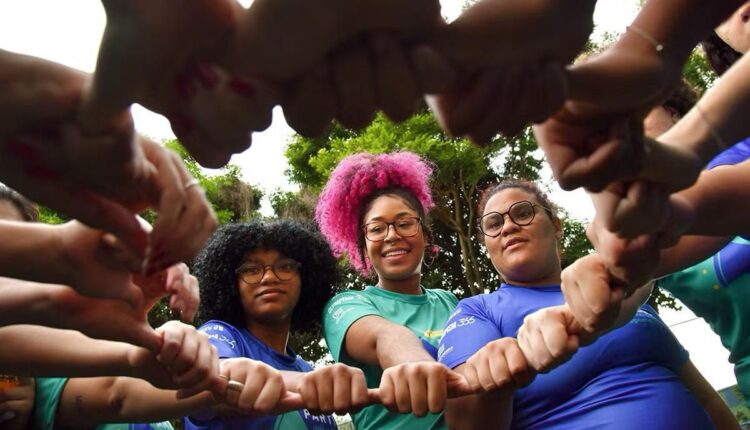Raising Equality: How to Talk to Kids About Gender Stereotypes in Africa and Beyond
Written By Maxine Ansah
Before most children can even read, they have already absorbed ideas about what boys and girls “should” be like. A boy in Nairobi might be told not to cry because “he’s a man,” while a girl in Lagos is praised for helping in the kitchen but discouraged from playing football. Across continents and cultures, gender stereotypes are passed down in everyday conversations, cartoons, textbooks, and family routines.
According to research cited by UN Women, children as young as three years old begin to absorb gender stereotypes, and by age 10, these ideas have already begun to shape their self-image and future aspirations. A study by UNICEF found that by age 14, girls drop out of sports at twice the rate of boys. Six in ten boys surveyed believed that “boys are naturally better than girls at sport.” These perceptions are not only limiting but deeply entrenched and they influence everything from career goals to self-esteem.
In Africa, the impact of these stereotypes can be compounded by limited access to education, harmful traditional practices, and socio-economic inequality. But African parents, teachers, and communities also have immense power to reshape these narratives starting with the conversations we have with children. Here’s how.
Start the Conversation – Early and Often
Talking about gender equality doesn’t require a lecture. These conversations can happen during daily routines, like watching TV, reading bedtime stories, or discussing school activities.
For example, a South African parent watching a film with their child could pause and ask:
- Who are the main characters?
- Who makes the decisions in this story?
- Is the girl always being rescued, or is she leading too?
The UN Women storytelling project Awake Not Sleeping offers 28 reimagined fairy tales from around the world great for challenging traditional gender roles with modern values of courage, kindness, and equality.
Mind Your Words – Language Shapes Reality
Phrases like “boys don’t cry” or “girls are bossy” might seem harmless, but they plant seeds of inequality. In many African languages and cultures, roles are linguistically gendered yet children can be taught that strength, kindness, and leadership are not tied to gender.
Try this at home or in class:
- Replace “bossy” with “confident.”
- Say “don’t give up” instead of “man up.”
- Praise boys for being nurturing, and girls for being brave.
Encourage children to create posters of positive phrases and display them proudly.
Make Chores Equal – Teach Through Action
African households often divide chores along gender lines, with girls more likely to be assigned caregiving and domestic duties. But children notice who does what and that shapes their expectations of adulthood.
Create a rotating chores chart where all children take turns cooking, cleaning, setting the table, and reading to younger siblings. Talk about why sharing work matters: because everyone’s time and contribution are valuable.
UN Women notes that women globally do 2.5 times more unpaid care work than men. Changing this starts at home.
Show Role Models – Representation Matters
When African children see people who look like them breaking barriers, it expands their horizons. Think of Wangari Maathai, the first African woman to win the Nobel Peace Prize, or Caster Semenya, who has faced gender discrimination in sports but continues to advocate for equality.
Boys, too, need role models who challenge toxic masculinity like South African artist Trevor Stuurman, who uses fashion to express identity and care, or men leading local gender equality campaigns.
Build a “role model wall” at home or school. Each week, add someone who challenges gender norms from activists and athletes to family members and talk about why their story matters.
Talk About Digital Respect – Online and Offline Worlds Collide
Today’s youth are digital natives. In countries like Kenya, Ghana, and Nigeria, smartphone access among teenagers is high, and so is exposure to online gender bias. Girls and gender-diverse youth are especially vulnerable to cyberbullying and harassment, while boys are targeted by online groups promoting misogyny under the guise of “men’s rights.”
Together with your child, become “media detectives”:
- Who is talking in this video/post?
- Does their message promote respect and equality?
- Who might be harmed by these views?
UNICEF’s child online safety guide also offers tools for creating safe, respectful digital spaces that may be helpful in helping you teach your child how to navigate the digital world.
Support Girls in Sport – and Boys Who Dance
Sport is more than just physical activity it builds resilience, teamwork, and confidence. Yet, many African girls are discouraged from participating due to societal expectations or lack of facilities.
Parents and teachers can counter this by:
- Watching women’s matches with kids (like Nigeria’s Super Falcons or South Africa’s Banyana Banyana).
- Encouraging both girls and boys to try new sports or expressive arts like dance and drama.
- Celebrating effort, not just victory.
Share stories of African women athletes like Asisat Oshoala or Caster Semenya who have challenged discrimination and redefined strength.
Raising a Generation That Knows Better
Changing how we talk to children about gender doesn’t require perfection just intention. These small daily shifts choosing better words, sharing responsibilities, celebrating diverse role models can build a foundation of empathy, fairness, and equality.
The road to gender equality may still be long UN Women estimates it could take almost 300 years to fully close the gap globally. But each honest conversation, each fair choice, brings us one step closer. And for the children of Africa and the world, that future starts now.








